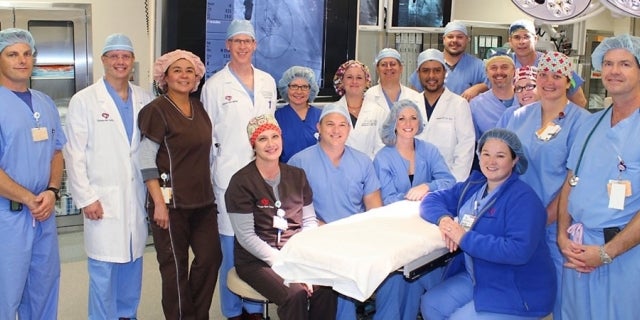Atrial Fibrillation (AFib), the most common heart arrhythmia affecting up to 5 million Americans, is now linked to an increased risk for sudden cardiac death, according to a recent study published in the Journal of the American Medical Association. The association was studied in two population cohorts, finding the risk triples for those with incident AFib and doubles after the onset of AFib. Researchers believe this study confirms AFib should no longer be viewed as “a benign condition.” More than 15,000 adults ages 45 at 64 at the baseline participated in theAtherosclerosis Risk... Read More »
Blog
Smoking is the roulette of health gambles. Watching the wheel spin, the marble ball bounce over red, then black until finally stopping on the final number, you never know what you are going to get. You could smoke for a lifetime and escape lung and heart disease. You could be the casual smoker with a fist-sized tumor in your chest. You could be the 2 packs-a-day smoker who finds out she has lung cancer right after the birth of her first grandchild and dies three months later. For 55 year old Greg Goin, it wasn’t worth spinning the wheel and taking the chance anymore.
Born into a... Read More »

On Tuesday, November 13, a team of Oklahoma Heart Institute (OHI) physicians successfully performed Tulsa’s first two transapical transcatheter aortic valve replacement (TA-TAVR) procedures. TA-TAVR is a life-saving procedure for patients with severe aortic stenosis who are at too high a risk for traditional open heart surgery.
The transapical approach to TAVR was FDA approved in October 2012. Unlike transfemoral TAVR (TF-TAVR), where the heart valve is inserted through a catheter in the femoral (groin) artery, the TA-TAVR procedure involves implanting a new heart valve through a... Read More »
November 15 is the Great American Smokeout, a date the American Cancer Society hopes motivates smokers to make a plan to quit or actually stop smoking on that day. According to recent studies, the number of Americans smoking has remained unchanged from 2010 to 2011, progress stalled as compared to the smoking decline reported from 2005 to 2011. Among smokers, there has been a change in behavior. The number of adults who smoke more than 30 cigarettes in a day decreased from 13 percent in 2005 to 9 percent in 2011. However, the number of smokers... Read More »
Two large arrhythmia trials were presented at the American Heart Association Sessions this week, which could significantly impact clinical practice. Oklahoma Heart Institute participated in both national, multi-center randomized trials, the BLOCK HF trial and MADIT-RIT trial. Oklahoma Heart Institute cardiac electrophysiologist, Dr. David Sandler explains the impact of these findings for patients, “whether through device choice or device programming, we are identifying opportunities to make dramatic improvements in patient outcomes."
BLOCK HF The BLOCK HF national clinical trial... Read More »
The American Heart Association Sessions are underway in Los Angeles, California this week, presenting a record 28 late-breaking trials, many with potential to impact clinical practice. Director of the Cardiac & Interventional Laboratories at Oklahoma Heart Institute, Dr. Wayne Leimbach is attending sessions and reporting findings as they break. One trial receiving early attention and discussion is the FREEDOM trial, a study of 1,900 diabetic patients with multivessel coronary disease comparing results of bypass surgery to drug-eluting stents.
Combining the outcomes of death,... Read More »
At 58, Mike Pulzer was starting to slow down, but didn’t know why. “I used to stay up until midnight and wake up at 6am and be fine,” Pulzer says. “Then all of the sudden by 4pm I was done for the day, exhausted.” The normally energetic retirement community executive noticed he was also losing his appetite. Within a six month period in 2011, Pelzer went from 172 to 137 pounds. He knew something was wrong. Unable to get clear answers from his primary care physician and a recent treadmill test a nurse called “not normal, but not abnormal”, Pelzer turned to the Internet and found Oklahoma... Read More »
Oklahoma Heart Institute cardiologists attend the largest educational conference for interventional cardiology in the world this week at the Transcatheter Cardiovascular Therapeutics Conference in Miami, Fl. The conference is an opportunity for recent trials, studies and reviews of trials to be presented from around the world, alongside live televised cases showcasing the latest in medical advances and cutting-edge technology.
Dr. Wayne Leimbach, Chief of Cardiology at Oklahoma Heart Institute reported on this week’s events on our Facebook page and says the new devices and... Read More »
With three weeks to go before the Tulsa Run, we asked Oklahoma Heart Institute cardiologist and runner, Dr. Kyle Zimmerman to share how we should be preparing in this final stage of training.
How should I be training the final weeks before the Tulsa Run?The final few weeks of training are important to ensure adequate rest and avoid unnecessary injuries. The last week before the race, one should taper avoiding running all together 3 days before the race. Low impact cross training with swimming, elliptical, etcetera are ways to maintain cardiovascular fitness. Two weeks before the... Read More »
For more than three decades Glenda Findley has been wondering. “You always think, is this it?” Glenda says of her husband’s heart disease. Although there would not be days she could forget regardless of when they occurred, Glenda’s husband, E.G., has suffered heart attacks on their wedding anniversary, his birthday and again right before Christmas day. He had his first heart attack at the age of 38. His co-workers convinced him to go to the ER in Cleveland, because he wasn’t feeling right. After a stress test, he was transferred to Hillcrest Medical Center.
“He spent about two... Read More »
